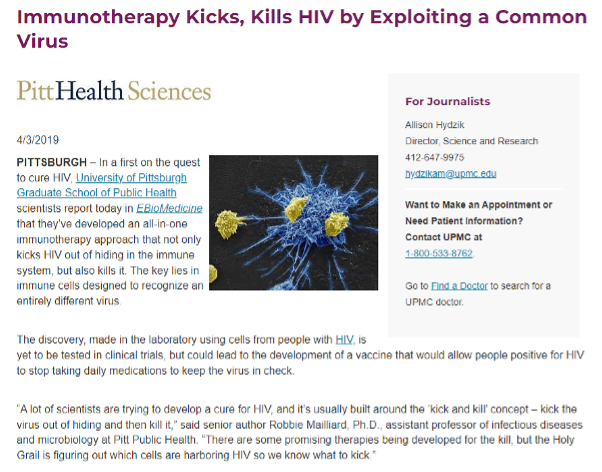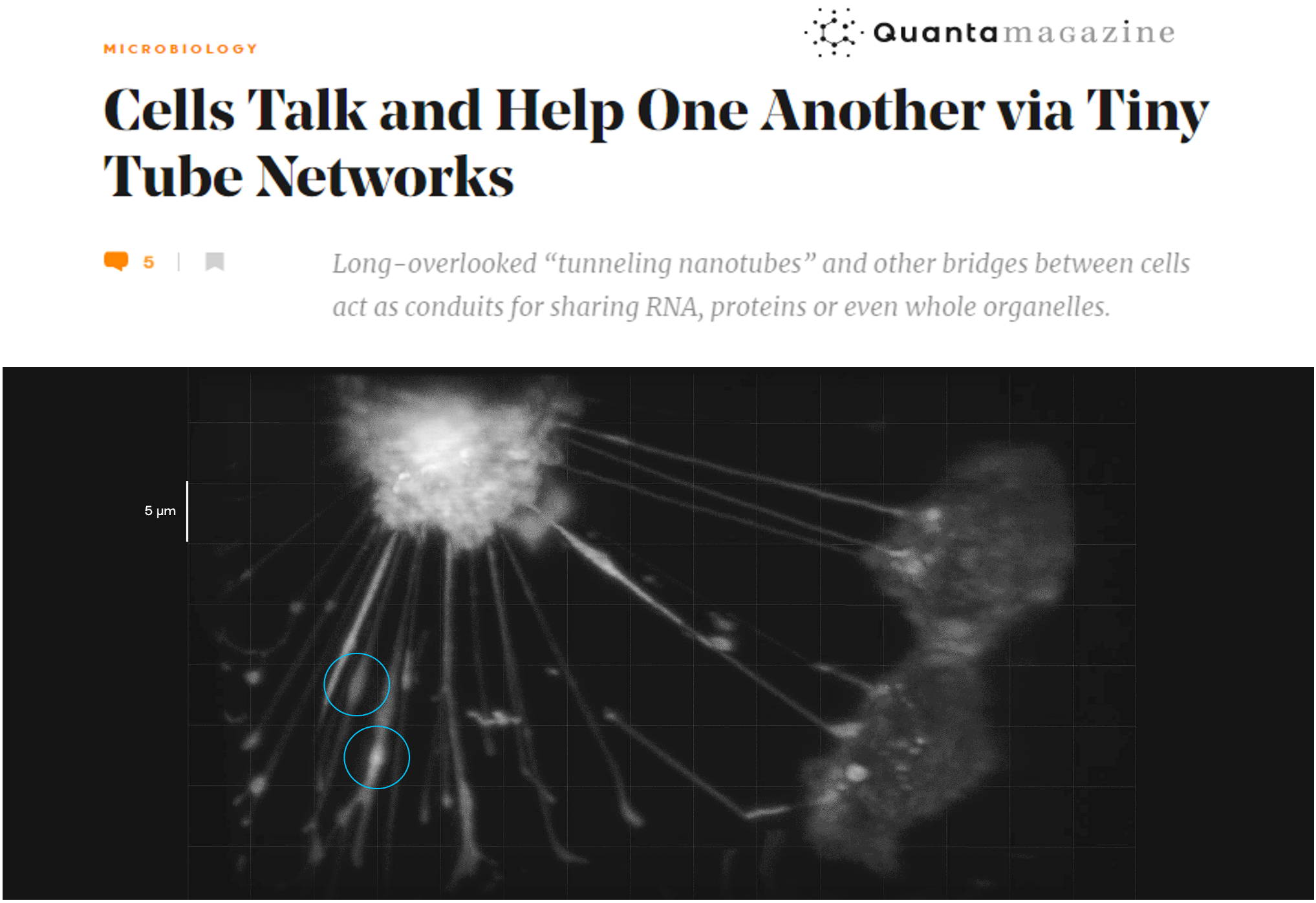Mailliard Laboratory

The Team
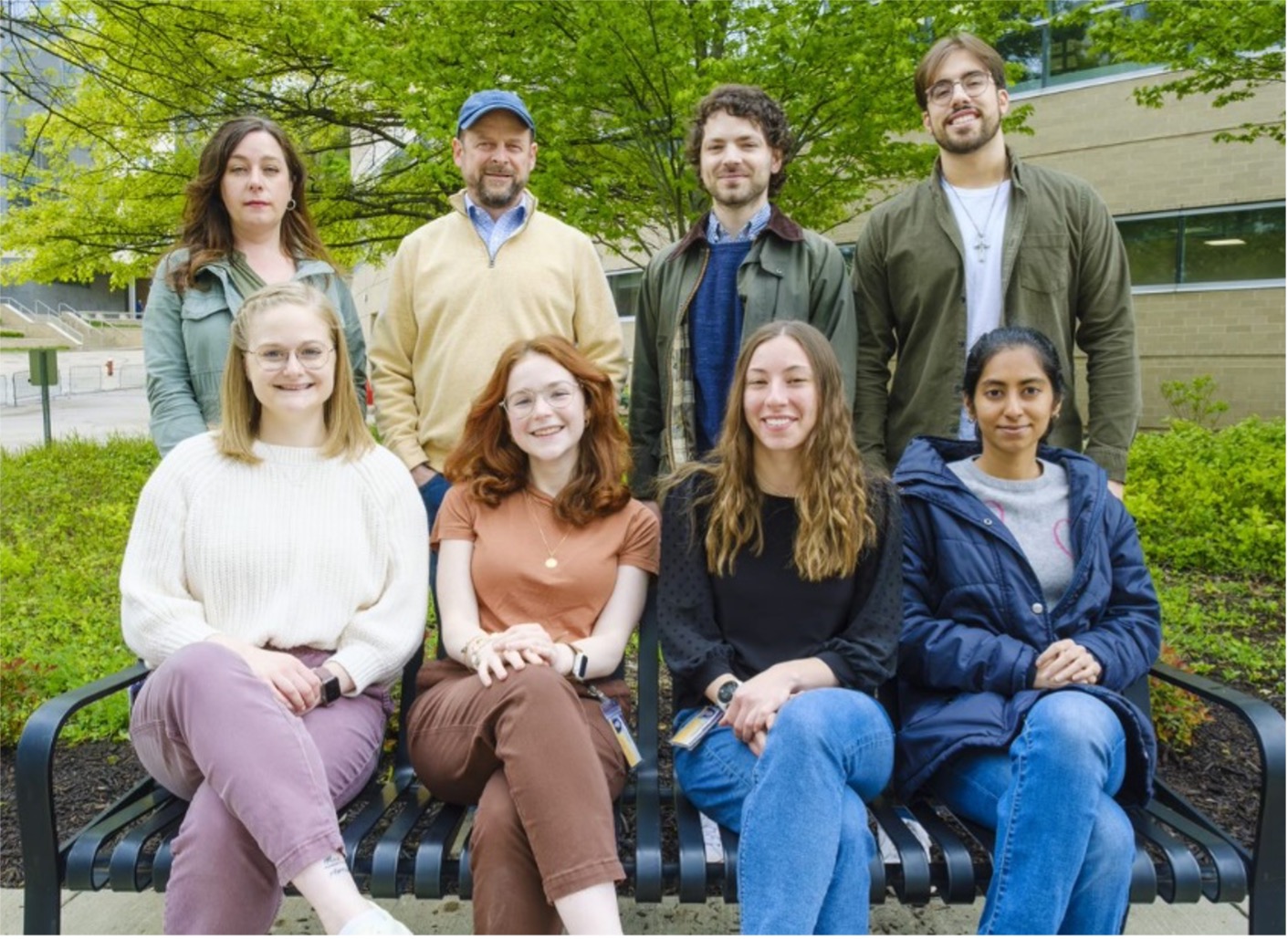
Top row : Holly Bilben, Dr. Mailliard, Peter Shoucair, Joseph McNulty
Botttom row : Ally DePuyt, Grace Bothwell, Lexi Mullen, Subeksha Ravi

Holly A. Bilben
hob1@pitt.edu

Peter Shoucair
pes41@pitt.edu
Contact
Robbie B. Mailliard, PhD
rbm19@pitt.edu
S857 Scaife Hall
Tel: 412-624-3848
Laboratory:
8th Floor Scaife Hall
3550 Terrace Street
Pittsburgh, PA 15261
Tel: 412-648-4227
Research Areas
Programming dendritic cells (DCs) for the “Kick and Kill” of latent HIV
Much of our research has focused on the central role of dendritic cells in mediating immune cross-talk and cellular immunity. The Mailliard lab has made substantial scientific contributions to areas of basic human DC biology and DC-based therapies. Most noteworthy, Dr. Mailliard was the primary author of the first report describing the clinically applicable type-1 polarized alpha-DC1 (aDC1 or MDC1) vaccine platform that has been widely explored in clinical trials for the treatment of chronic diseases including cancer and HIV. Other studies centered on DC crosstalk with other immune cells have resulted in numerous novel findings, including the identification of an immunologic process termed ‘DC reticulation’, whereby DC tunneling nanotube (TNT) networks are induced to by CD4+ T helper cells facilitate intercellular communications and functional transfer of antigen between DCs, and pathogens can utilize this process intercellular trafficking. More recent work has focused on utilizing DCs to induce effective CTL responses against conserved regions of HIV, while also serving as a tool to drive latent HIV-1 out of hiding during antiretroviral therapy (ART) as part of the ‘kick and kill’ approach to the HIV-1 cure.
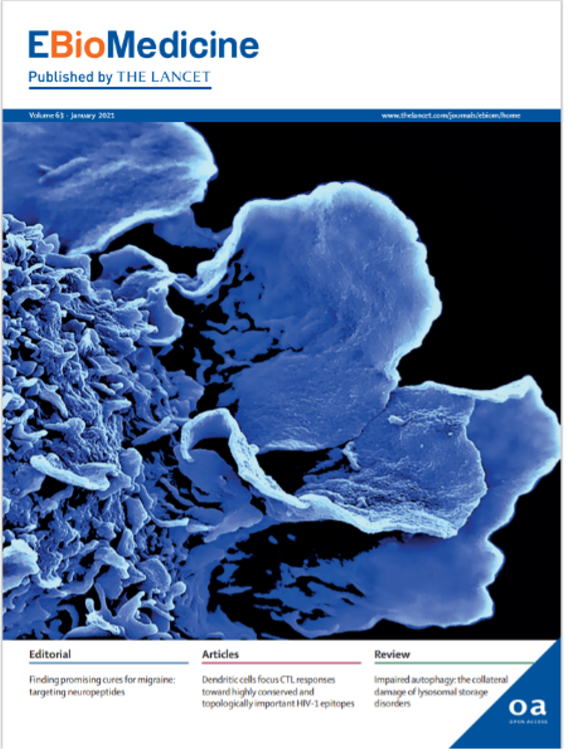
Mailliard Lab Gets the Cover
EBioMedicine. 2021 Jan 12; 63:103175. doi: 10.1016/j.ebiom.2020.103175. PMCID:PMC7811131
Editorial Commentary: Honing the T cell response to HIV: Turning off the noise.
EBioMedicine. 2021 Jan 27;64:103217. doi: 10.1016/j.ebiom.2021.103217. PMID:33516065
Key publications related to this work
- Mailliard RB, Wankowicz-Kalinska A, Cai Q, Wesa A, Hilkens CM, Kapsenberg ML, Kirkwood JM, Storkus WJ, Kalinski P. Alpha-type-1 polarized dendritic cells: a novel immunization tool with optimized CTL-inducing activity. Cancer Res 2004;64(17):5934-5937. PMID: 15342370.
- Helfer BM, Balducci A, Nelson AD, Janjic JM, Gil RR, Kalinski P, de Vries IJ, Ahrens ET, Mailliard RB. Functional assessment of human dendritic cells labeled for in vivo (19)F magnetic resonance imaging cell tracking. Cytotherapy. 2010 Apr; 12 (2):238-50. PMCID: PMC20053146.
- Zaccard CR, Watkins SC, Kalinski P, Fecek RJ, Yates AL, Salter RD, Ayyavoo V, Rinaldo CR, Mailliard RB. CD40L induces functional tunneling nanotube networks exclusively in dendritic cells programmed by mediators of type-1 immunity. J Immunol 2015;194(3):1047-1056. PMCID: PMC4297732.
- Kristoff J, Palma ML, Garcia-Bates TM, Shen C, Sluis-Cremer N, Gupta P, Rinaldo CR, Mailliard RB*. Type 1-programmed dendritic cells drive antigen-specific latency reversal and immune elimination of persistent HIV-1. EBioMedicine. 2019 May;43:295-306.doi: 10.1016/j.ebiom.2019.03.077. Epub 2019 Apr 2. PMCID: PMC6557749. (*Editorial Commentary; F1000 Prime Article, Faculty of 1000)
- Garcia-Bates TM, Palma ML, Anderko RR, Hsu DC, Ananworanich J, Kober BT, Gaiha GD, Phanuphak N, Thomas R, Tovanabutra S, Walker BD, Mellors JW, Piazza PA, Kroon E, Riddler SA, Michael NL, Rinaldo CR, Mailliard RB, on behalf of the I4C and RV254 Study Groups. Dendritic cells focus CTL responses toward highly conserved HIV epitopes. EBioMedicine. 2021 Jan 12; 63:103175. doi: 10.1016/j.ebiom.2020.103175. PMCID:PMC7811131. (*Journal Cover / Editorial Commentary)
Defining CD8+ T cell helper vs effector functions in the host immune response
An area of scientific contribution of the Mailliard group centers on defining the basic helper functions of CD8+ T cells in human immunology. Previously, the role of providing immune ‘help’ was a trait exclusive to CD4+ T helper cells, with CD8+ T cells being mainly recognized for the cytotoxic killer function. Early work from Dr. Mailliard brought forward the notion that CD8+ T cells can also provide critical feedback ‘helper’ signals to dendritic cells (DC) that greatly influence the nature of their interaction with CD4+ T cells, and thus affects the overall quality and character of the resulting adaptive immune responses. This work has led to a number of studies implementing CD8+ T cell ‘help’ in the design of immunotherapies geared towards generating effective type-1 cellular responses to cancer. While current work on this topic centers on developing ways to generate and enhance the long-term survival of effective cytotoxic T cells (CTL) to treat chronic HIV-1 infection, novel findings from the lab have determined that HIV-1 can selectively utilize certain aspects of such DC-mediated CD8+ T cell ‘help’ as a strategy to evade CTL immunity and to facilitate viral persistence.
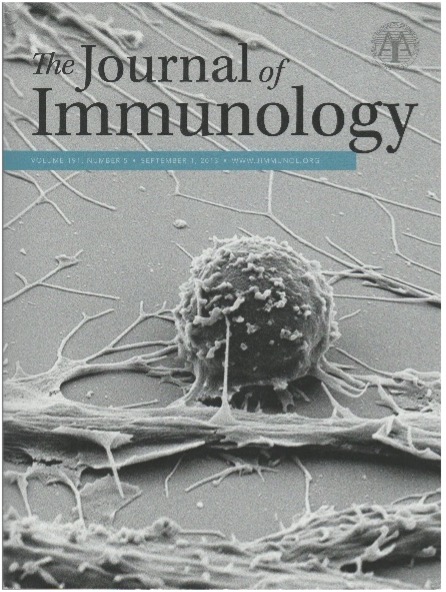
Mailliard Lab Gets the Cover
J Immunol 2013;191(5):2570-2580. PMCID: PMC3786204.
Key publications related to this work
- Mailliard RB, Egawa S, Cai Q, Kalinska A, Bykovskaya SN, Lotze MT, Kapsenberg ML, Storkus WJ, Kalinski P. Complementary dendritic cell-activating function of CD8+ and CD4+ T cells: helper role of CD8+ T cells in the development of T helper type 1 responses. J Exp Med 2002;195(4):473-483. PMCID: PMC2193623
- Mailliard RB, Smith KN, Fecek RJ, Rappocciolo G, Nascimento EJ, Marques ET, Watkins SC, Mullins JI, Rinaldo CR. Selective Induction of CTL Helper Rather Than Killer Activity by Natural Epitope Variants Promotes Dendritic Cell-Mediated HIV-1 Dissemination. J Immunol 2013;191(5):2570-2580. PMCID: PMC3786204. (* Cover Featured Article)
- Smith KN, Mailliard RB, Piazza PA, Fischer W, Korber BT, Fecek RJ, Ratner D, Gupta P, Mullins JI, Rinaldo CR. Effective cytotoxic T lymphocyte targeting of persistent HIV-1 during antiretroviral therapy requires priming of naive CD8+ T cells. MBio 2016;7(3):pii: e00473-e00416. PMCID: PMC4895106
- Garcia-Bates TM, Palma ML, Gambotto A, Macatangay BJC, Ferris RL, Rinaldo CR and Mailliard RB. Contrasting roles of the PD-1 signaling pathway in dendritic cell-mediated induction and regulation of HIV-1 specific effector T cell responses. J Virol. 2019 Feb 19;93(5):e02035-18.doi: 10.1128/JVI.02035-18. Print 2019 Mar 1. PMCID: PMC6384070. (*F1000 Prime Article, Faculty of 1000)
Defining and exploiting the pleiotropic functions of NK cells in innate vs adaptive immunity
Dr. Mailliard was one of the first to described how NK cells can modulate DC function and influence their ability to induce adaptive T cell responses. He was also the first to characterize a specialized NK ‘helper’ cell phenotype that could be induced by IL-18 to acquire lymph node homing potential and rapidly respond to subsequent stimulation to produce a variety of factors that can influence the overall character of the adaptive response. This was the first report to indicate that NK cells can be pre-programmed to have a ‘memory-like’ quality. This novel area of NK cell ‘help’ and NK cell ‘memory’ continues to a receive attention in the field. The Mailliard lab is currently evaluating an inflated population of FcRgneg ‘memory-like’ NK cells commonly found in the setting of HIV/CMV co-infection, their impact on the generation of effective primary T cell responses to novel antigens including SARS-Cov-2, and their potential to be harnessed to facilitate more effective responses to antibody-based therapies.
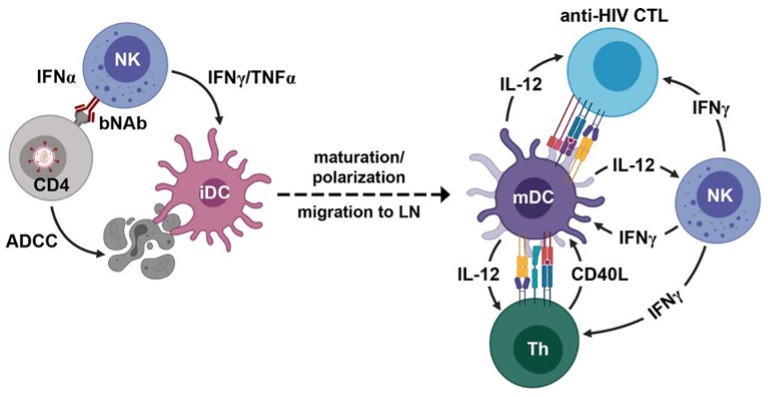
Key publications related to this work
- Mailliard RB*, Son YI, Redlinger R, Coates PT, Giermasz A, Morel PA, Storkus WJ, Kalinski Dendritic cells mediate NK cell help for Th1 and CTL responses: two-signal requirement for the induction of NK cell helper function. J. Immunol 2003 Sep 1; 171 (5):2366-73. PMID: 12928383. (*F1000 Prime Article, Faculty of 1000)
- Mailliard RB*, Alber SM, Shen H, Watkins SC, Kirkwood JM, Herberman RB, Kalinski P. IL-18-induced CD83+CCR7+ NK helper cells. J Exp Med 2005; 202(7):941-953. PMCID: PMC2213172. (*Editorial Comentary)
- Wong JL, Mailliard RB, Moschos SJ, Edington H, Lotze MT, Kirkwood JM, Kalinski P. Helper activity of natural killer cells during the dendritic cell-mediated induction of melanoma-specific cytotoxic T cells. Journal of Immunotherapy (Hagerstown, Md.: 1997). 2011 Apr; 34 (3):270-8. PMCID: PMC3057371. PMID: 21389871.
- Anderko RR, Rinaldo CR, and Mailliard RB. IL-18 responsiveness defines limitations in immune ‘help’ for specialized FcRγ– NK cells. Journal of Immunology (Baltimore, Md.: 1950). 2020 Dec 15;205(12):3429-3442. doi: 10.4049/jimmunol. 2000430. Epub 2020 Nov 13. PMID:33188073
Mailiard Lab in the News
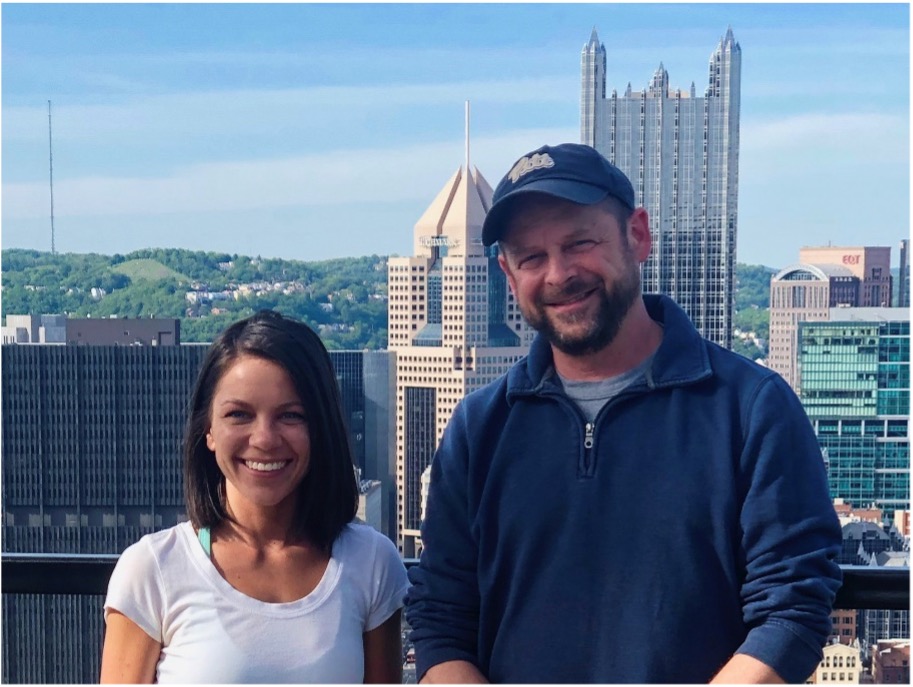
The 2020 AAI Careers in Immunology Fellowship Awarded to the IDM team of Renee R. Anderko and Dr. Robbie B. Mailliard.
Anderko RR, Rinaldo CR, Mailliard RB. IL-18 Responsiveness Defines Limitations in Immune Help for Specialized FcRγ– NK Cells. J Immunol. 2020 Nov 13:ji2000430. doi: 10.4049/jimmunol.2000430. Epub ahead of print. PMID: 33188073.
Pitt Scientists Develop ‘Swiss Army Knife’ Immunotherapy That Kicks, Kills HIV By Exploiting Common Virus
https://www.cbsnews.com/pittsburgh/news/pitt-scientists-develop-kick-kill-hiv-immunotherapy/
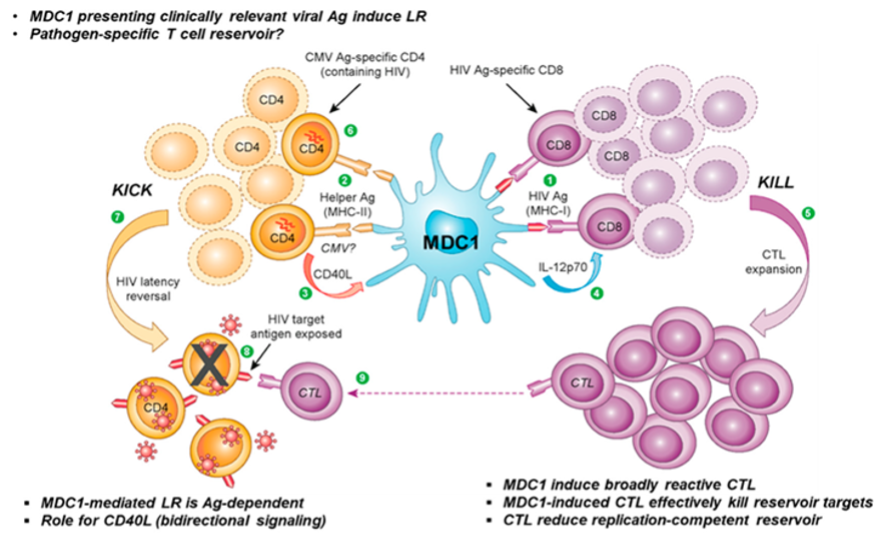
A New Bag of Tricks for Immune Cells
“The dendritic cells do this in such a rapid and dramatic way when they reticulate. It’s like a bunch of little Spider-Men who are just shooting off these webs,” Mailliard said. “They spend a heck of a lot of energy in a very short period of time to make these connections, so I think they do serve some sort of an important purpose” in the immune response.
https://www.quantamagazine.org/cells-talk-and-help-one-another-via-tiny-tube-networks-20180423/
Contact Us

Division of Infectious Diseases
Academic Administrative Office
818 Scaife Hall
3550 Terrace Street
Pittsburgh, PA 15261
Academic Office: 412-383-9062
For Patients: 412-647-7228
Center for Care of Infectious Diseases
Falk Medical Building
3601 Fifth Avenue, 7th Floor
Pittsburgh, PA 15213
Patient Appointments: 412-647-7228
Main CCID Fax: 412-647-7951



